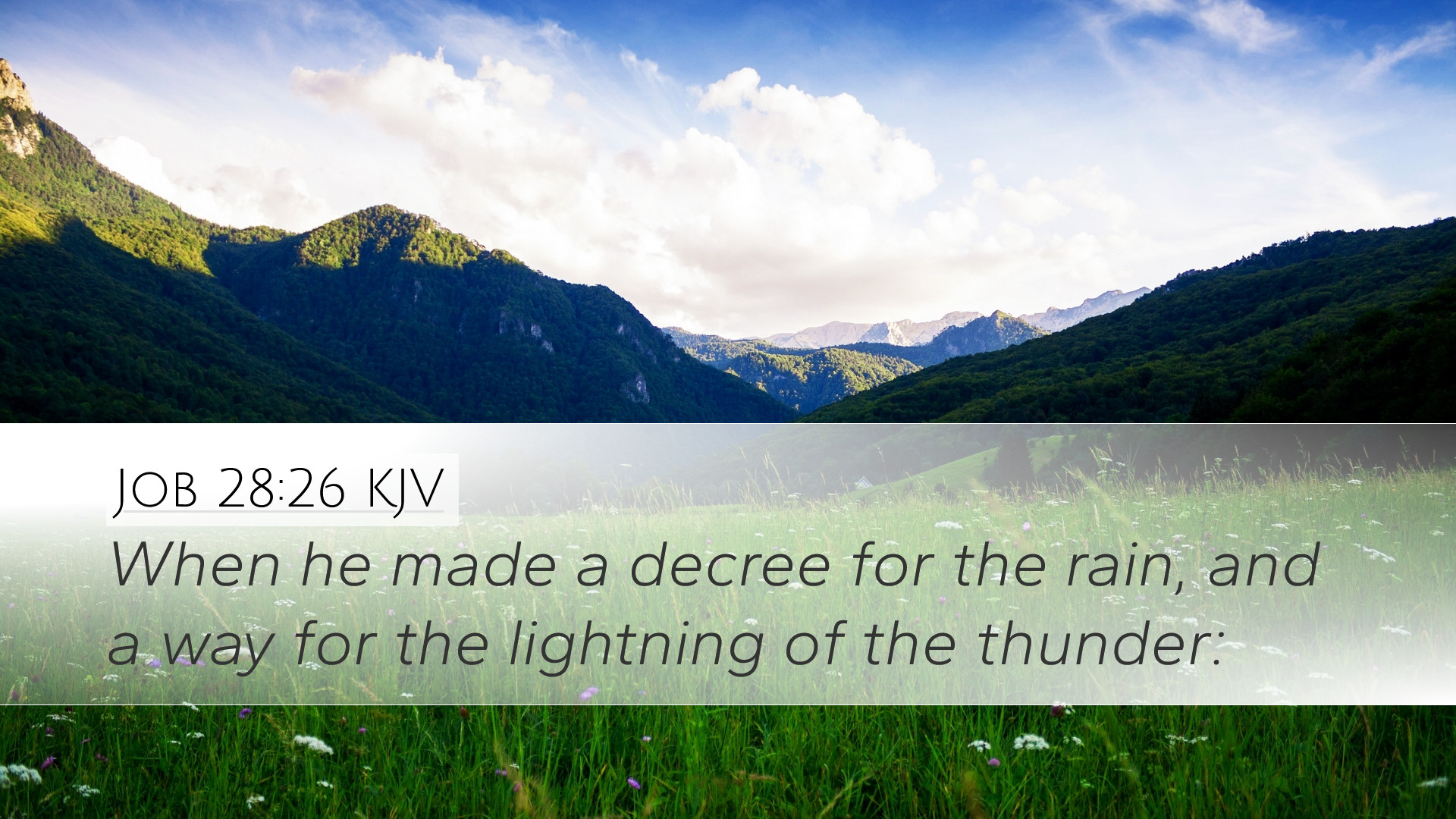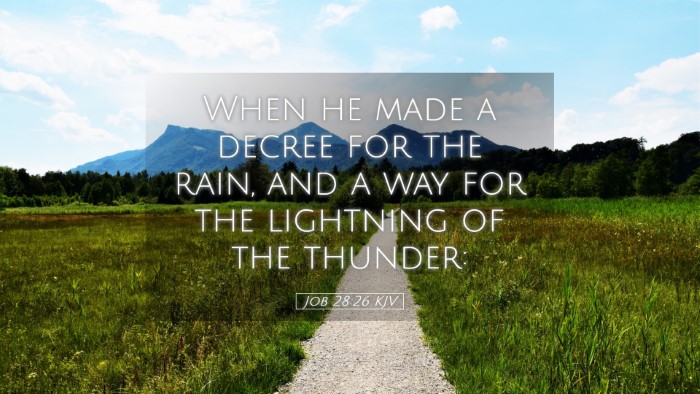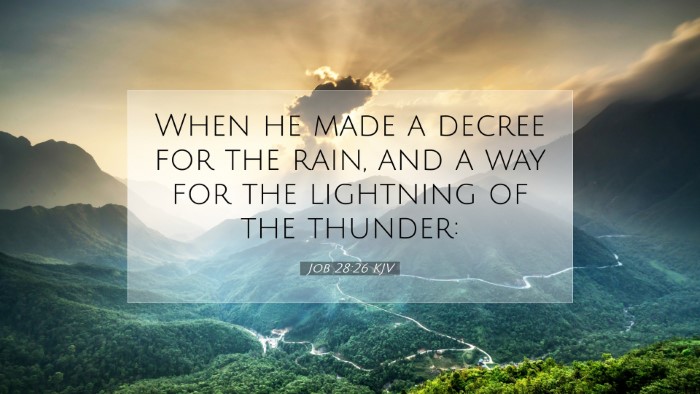Old Testament
Genesis Exodus Leviticus Numbers Deuteronomy Joshua Judges Ruth 1 Samuel 2 Samuel 1 Kings 2 Kings 1 Chronicles 2 Chronicles Ezra Nehemiah Esther Job Psalms Proverbs Ecclesiastes Song of Solomon Isaiah Jeremiah Lamentations Ezekiel Daniel Hosea Joel Amos Obadiah Jonah Micah Nahum Habakkuk Zephaniah Haggai Zechariah MalachiJob 28:26
Job 28:26 KJV
When he made a decree for the rain, and a way for the lightning of the thunder:
Job 28:26 Bible Commentary
Commentary on Job 28:26
Introduction
Job 28:26 states, "When he made a decree for the rain, and a way for the lightning of the thunder." This verse is situated within a profound discourse on wisdom, emphasizing God's sovereignty over nature and the divine order of creation. The verse serves as a reminder of God's authority and the limitations of human understanding.
Contextual Overview
This verse is part of a larger poetic section in the Book of Job, where Job reflects on the nature of wisdom and its elusiveness. Job contrasts human wisdom with divine wisdom, exploring the often-unattainable nature of true knowledge. The preceding verses discuss how gold and silver cannot compare to the value of wisdom, which is found solely in God.
Exegesis of Job 28:26
Divine Decree
Matthew Henry emphasizes that God's decree concerning the rain represents His power and authority over the natural elements. God has established certain laws and boundaries in creation that demonstrate His control and intentionality. This divine decree illustrates the concept that God governs the natural world, which in turn reflects His perfect wisdom.
The Way for Lightning
Albert Barnes provides insight into the metaphor of "a way for the lightning of the thunder." He interprets this as God's orchestration in how storm systems operate, suggesting that God has even determined the paths that storms will take. The imagery of lightning carries a dual connotation of God's power and unpredictability, reminding readers that, while God’s ways may be beyond human comprehension, they are always purposeful.
Theological Implications
The verse underscores the vast chasm between divine wisdom and human understanding. Adam Clarke notes that while humans seek knowledge and control—such as predicting weather patterns—true wisdom resides with God alone. This emphasizes not only the greatness of God but also the humility required of believers as they acknowledge the limits of their own knowledge.
The Nature of Wisdom
Throughout Job 28, the pursuit of wisdom is emphasized repeatedly. Job asks rhetorical questions to convey that wisdom cannot be mined like precious metals or found in any earthly location. According to Matthew Henry, God’s decrees and works display His wisdom in creation, reflecting that the same divine wisdom is what judges the hearts of men.
Implications for Understanding Creation
This understanding has implications for how believers view the natural world. Albert Barnes points out that acknowledging God’s sovereignty inspires awe and motivates a posture of reverence. When faced with natural phenomena, one should recognize it as an expression of divine purpose rather than random occurrences. God's control over rain and thunder signifies His engagement with creation, speaking to His character as both transcendent and immanent.
Application for Believers
In the context of personal faith, Job 28:26 calls Christians to a deeper reliance on God’s wisdom in all circumstances. Adam Clarke advises that believers should cultivate an awareness of the divine order in the world around them, trusting that God acts for the ultimate good even when His ways are inscrutable.
The Role of Suffering
The verse resonates profoundly with the broader themes of suffering in the Book of Job. As Job faces incomprehensible trials, he is reminded through this passage that God’s decrees are not arbitrary. Matthew Henry notes that wisdom may lead to suffering, yet it is in this suffering that believers may gain a deeper understanding of God’s providence and character.
Conclusion
Job 28:26 serves as a succinct but powerful reminder of the majesty and sovereignty of God in creation. The combination of His authority over natural forces and the symbolism of wisdom calls on believers to acknowledge their limitations and trust in God’s ultimate plan. As believers deepen their knowledge of God's wisdom, they are compelled to respond with worship, reverence, and a commitment to seek His ways in all aspects of life.


